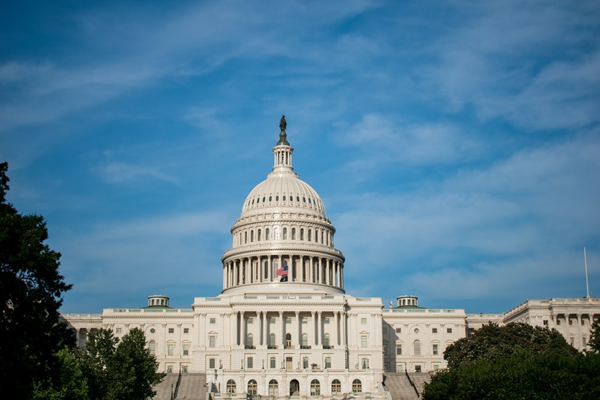NYC Education Dept. bans widely-used online gradebook after security breach – By Michael Elsen-Rooney, N.Y. Daily News
The New York City Education Department is barring city public schools from continuing to contract with the company behind a widely-used online gradebook after the program suffered a major data breach that exposed the personal data of more than 800,000 students.
DOE officials had already raised some red flags about cybersecurity protocols at the California-based Illuminate Education, the company behind the widely-used Skedula and PupilPath platforms following the investigation of the January security breach, but hadn’t previously barred the product in city schools.
But in an email to principals Tuesday, DOE First Deputy Chancellor Dan Weisberg said, “based on reviews of matters related to Illuminate’s security posture and response to the incident... we are directing all schools to cease using any Illuminate products and services after June 30, 2022.”
Skedula and PupilPath are used in hundreds of city schools to track grades and attendance and communicate with parents. The platforms abruptly shut down in January, prompting concerns of a hack.
But it wasn’t until March that education officials revealed the massive scale of the breach, which affected personal information of roughly 820,000 current and former students and may be the single largest student data breach in U.S. history.

Secretary Cardona Lays Out Vision to Support and Elevate the Teaching Profession – From US Department of Education
During an address asystem across the country. He also will highlight the work the Department has done to support teachers since the beginning of the Biden-Harris Administration and share his own experience and perspective as a former teacher, principal, and school administrator. In addition to Secretary Cardona’s visit, the Department is releasing a fact sheet on how American Rescue Plan (ARP) fund investments in our nation’s educators can be sustained for the long-term using other existing sources of federal funds.
"A great teacher in every classroom is one of the most important resources we can give our children to recover from this pandemic and thrive," said Secretary Cardona. "Yet, even before the pandemic, many states and communities experienced shortages in qualified teachers, including in critical areas such as special education, bilingual education, career and technical education, and science, technology, engineering, and math education. The pandemic has only served to make these shortages worse—falling hardest on students in underserved communities. It’s not only our responsibility but our commitment at the Department of Education to encourage, invest in, and lift up teachers across America. The future of our country and our children’s futures depend on it."
Secretary Cardona’s vision will focus on three areas:
- Recruiting diverse, high-qualified teachers into the profession and investing in high-quality teacher pipeline programs
- Supporting educators’ professional development to ensure our nation’s students are receiving high-quality education to meet the demands of today’s economy
- Investing in strategies to retain high-quality educators and keep them in the profession long-term.

Alabama schools to see steep cuts in state funding for teacher roles – By Tricia Powell Crain, AL.com
It’s that time of year again. The time of year when school officials make final decisions about which of their teachers will stay and which will go.
Most Alabama school districts will have fewer teachers funded through the state’s Foundation Program, the main source of funding for most districts. That’s one downstream effect of drops in public school enrollment since the start of the pandemic, and it may mean some job cuts.
How schools and districts make those cuts is ongoing, with many teachers learning in recent days and weeks that they will not return next year.
Letting teachers go, particularly non-tenured teachers, happens every year, but this year’s loss of state-funded teachers is the biggest since the Great Recession, according to Alabama Superintendent Eric Mackey, when a few thousand positions were lost.

NYC public school families to receive $375 per child for food benefits through federal COVID relief – By Marcela Rodrigues Sherley, Chalkbeat New York
All New York City public school families regardless of income will receive $375 per child in food benefits to help cover the costs of meals from last summer during the pandemic —whether they attended summer school or not.
The state began the rollout this month, with the retroactive benefit being distributed to students enrolled as of June 2021.
The benefit comes from the Coronavirus Pandemic Electronic Benefit Transfer or P-EBT, a federally created program covering meal expenses for students who typically received free meals when in school but were learning remotely due to the pandemic. This is the third round of food benefits for public school families across the state since the pandemic began in March 2020, with the state sending more than $3.4 billion to families since then, officials said.
Because New York City is a universal free lunch district, all public school students are eligible to receive P-EBT regardless of their household income. Families are also eligible regardless of immigration status.

Bipartisan boost: How Congress promises to cooperate on K-12 recovery – By Matt Zalaznick, District Administration
Leaders of a newly launched Public Schools Caucus in Congress plan to mount a bipartisan effort to rethink public education in the wake of COVID and the educational challenges it exposed. The group’s work will center on reversing the learning loss students suffered during remote learning, teacher absences, and other disruptions of the pandemic.
The ultimate goal is to rebuild public schools to provide all students with pathways to economic and social mobility. “It’s becoming nauseating to have the same debate and over again and we’re not actually talking to each other; we’re not actually listening to each other,” co-chair Rep. Ritchie Torres (D-NY) said during the caucus’ web conference kickoff Tuesday. “We can come together as Democrats and Republicans with a bipartisan vision for reimagining public education in the wake of COVID. We’ll discover we have more in common than we think.”
The caucus will seek to leverage K-12 innovations that proved successful during the pandemic to build more resilient schools and improve student outcomes. Year-round schooling is one model Torres would like the caucus to examine. “I am not a fan of summer vacation,” he said. “The idea that you can take a two-month absence and retain everything learned in the previous year is an absurdity.”












